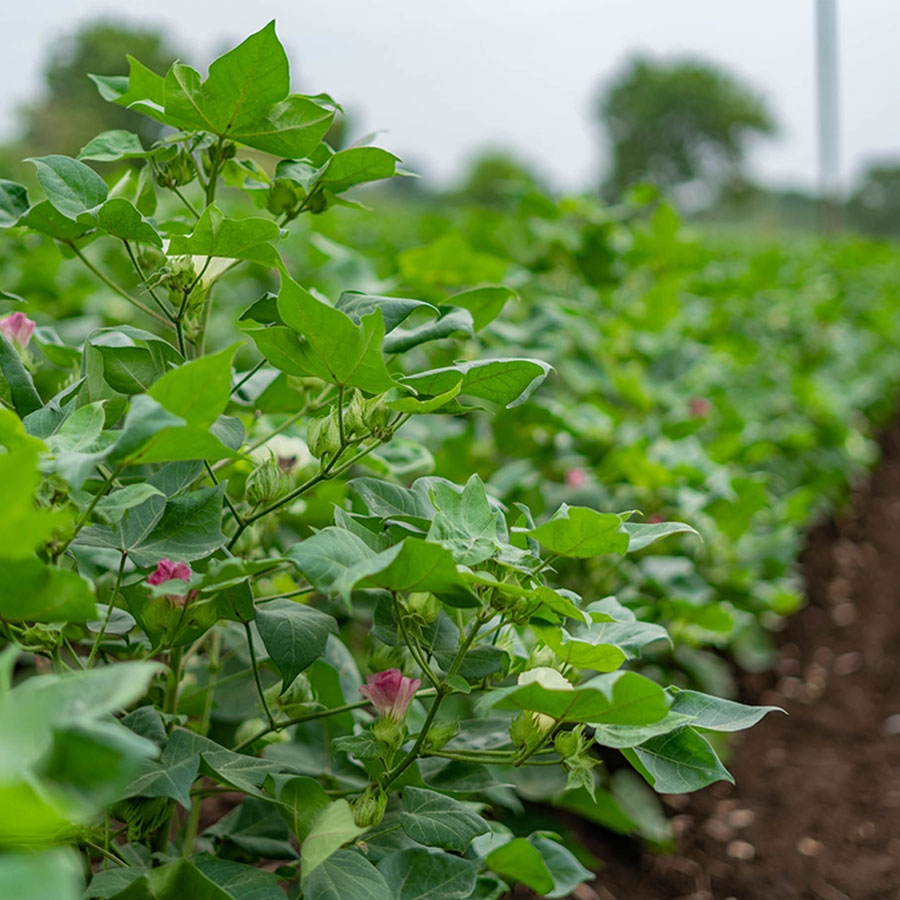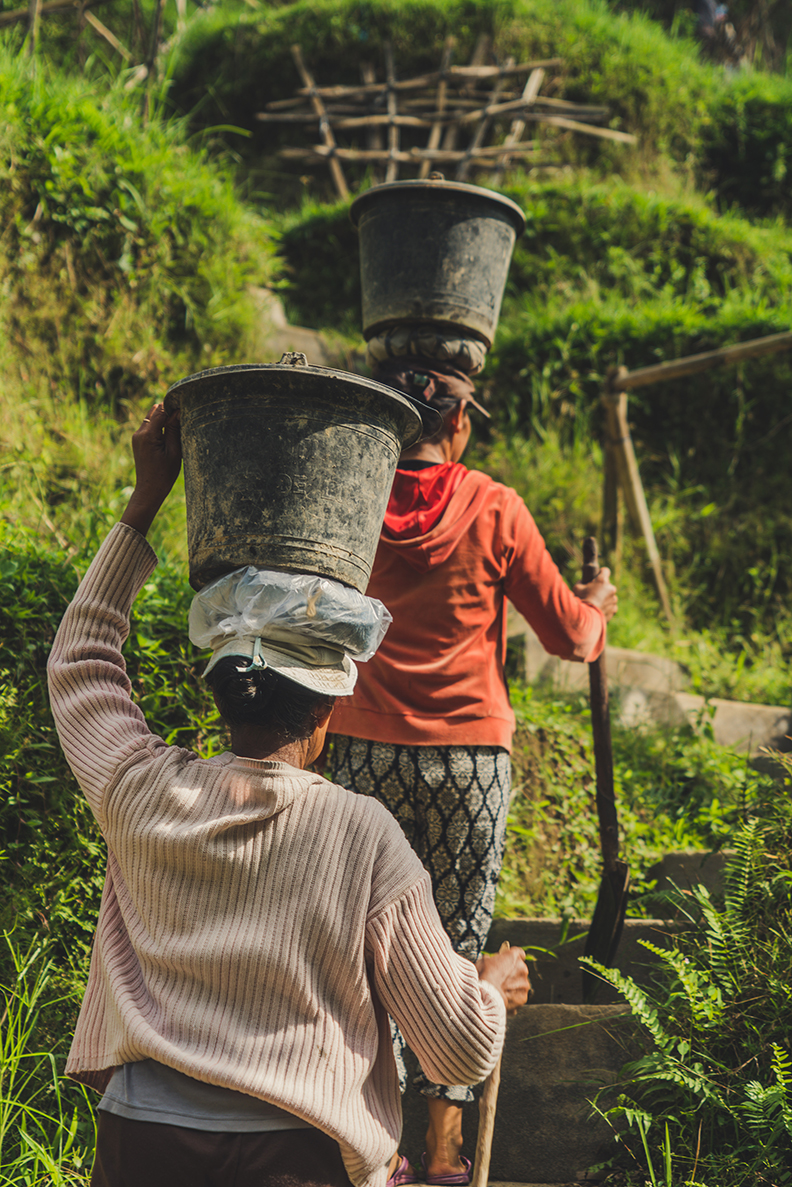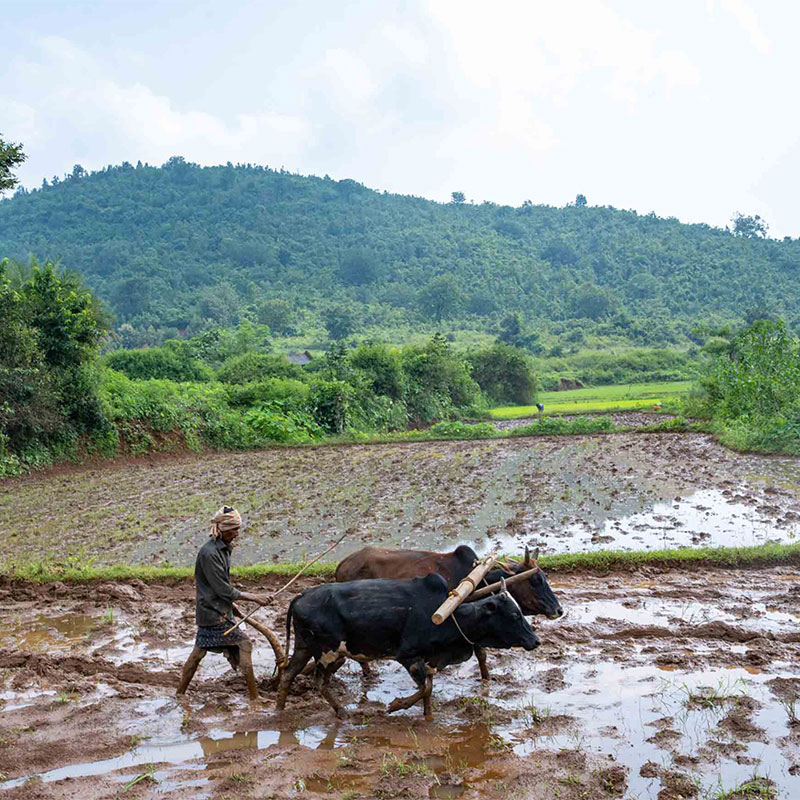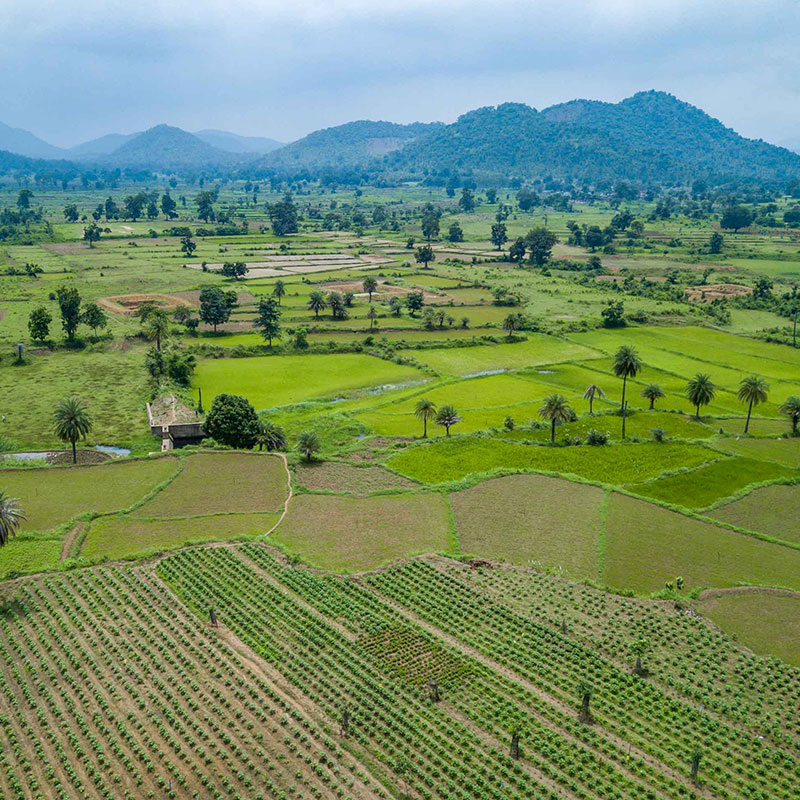Increased net income
Higher net incomes from cotton compared to local conventional farmers. OCA Farmers have lower production costs as they avoid chemical inputs and they receive premium payments for their organic cotton.


If you want to understand the benefits of organic cotton, you need to go to the very beginning of the cotton value chain – the seed, the farm. Organic farming combines tradition, innovation and science to benefit the environment, promoting fair relationships and improved quality of life for all. It relies on ecological processes, biodiversity, and cycles that are adapted to local conditions rather than using external inputs that could have adverse effects.
Unlike organic, conventional cotton production is known to contribute to biodiversity loss and threaten the livelihoods and health of farming communities through soil degradation, excessive water use, and chemical pollution at no added benefit.
Organic farming systems truly have the potential to serve as a model for more sustainable, regenerative production which empowers farmers and supports the environment. Though these benefits are significant, the supply of organic cotton is still small in comparison to conventional cotton.
This is why OCA is investing in in-conversion cotton to support farmers who want to switch to organic cotton farming. If we can support more farmers to practice organic farming, we can experience a greater positive impact on people, planet and production.
Organic farming can provide a clear route to improved livelihoods and long-term prosperity for organic farmers. Farmers in OCA’s Farm Programme experience the following benefits:
Higher net incomes from cotton compared to local conventional farmers. OCA Farmers have lower production costs as they avoid chemical inputs and they receive premium payments for their organic cotton.
OCA Contributors in the Farm Programme make purchase commitments against a better price early in the season, and they invest in services which support farmers – giving farmers a much needed sense of security.
By working within a system that supports both farmers and the environment, organic farmers are able to meet the needs of the present without compromising the ability of future generations to meet their own needs.

From its agricultural stage to its industrial production, organic cotton offers a process that is far less polluting, requires less irrigation, and uses significantly less water. It helps save our freshwater resources as 80% of the land that produces organic cotton is located in predominantly rainfed areas.
In-conversion and certified organic farmers in OCA’s Farm Programme receive training in the specific organic and regenerative practices that promote soil health and functionality. They learn about rainwater harvesting, selecting drought-resistant seed cultivars, and implementing good soil management. Soils higher in organic matter are more biologically diverse and active, better at holding water, and therefore often more drought-tolerant – a significant long-term benefit in our changing climate.

Organic farming has great potential to mitigate global warming, through carbon sequestration and lower-input of fossil fuel dependent resources, such as synthetic fertilisers. Significant green house gas emissions are avoided in organic farming by replacing nitrogen fertiliser (typically used in conventional farming), which contributes significantly to GHG emissions, with organic alternatives. Further global warming potential is mitigated by the high carbon sequestration capacity of soil rich in organic matter, and through a number of practises promoted in organic systems including improved tilling, green mulching and choice of cover crops.

Providing food and shelter for wild species found on farms and thus increasing their number and variety
Supporting high levels of agro-biodiversity at the farm, especially through the use of diverse cotton species and cultivars
Maintaining healthy soils and soil fauna, such as earthworms
Reducing the risk of water pollution
Nourishing ecosystems and ensuring that they are not cleared to further extend the agricultural frontier